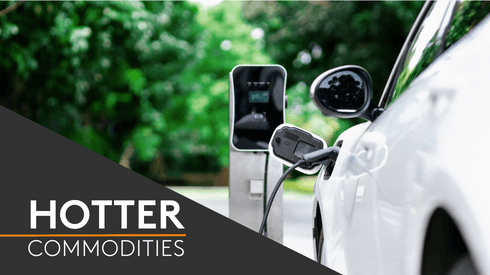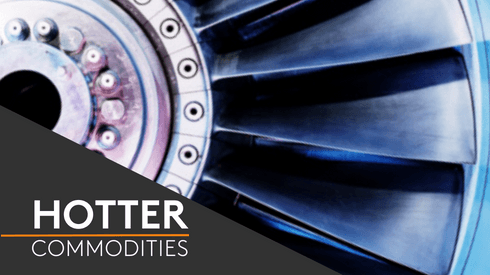A court in the DRC ruled to appoint an administrator from state mining body Gécamines to take charge of the Tenke Fungureme (TFM) copper and cobalt mine, which is majority-owned by diversified miner China Molybdenum, it was reported on Monday, February 28.
The ruling came with the prices of both cobalt and copper, metals essential for battery production and ‘green’ power, trading at multi-year high levels. The DRC supplies 70% of the world’s cobalt and is the biggest copper producer in Africa.
The news was expected to affect the cobalt hydroxide market, where prices were already at a three-year high due to logistics constraints and shipping delays lasting for months, according to sources.
In a ruling on February 28, the commercial court of Lubumbashi named Ngoie Mbaio Sage to take charge of TFM’s management and to divest the current directors of all management powers during the period of external administration, which was scheduled to last for six months.
The mine is 80% owned by the Chinese miner while the remaining 20% belongs to Gécamines.
The court’s decision came amid a pre-existing dispute between authorities and the Chinese company over the state of mineral reserves at the site, according to media reports.
China Moly still in control
But the timeline for the transfer of control, and the specific procedure for how the administration will take place, was still unclear.
A source at China Molybdenum told Fastmarkets on March 1 that the company was still in charge of the Tenke Fungureme mine.
The source said that there was “no suspension in production” and that deliveries were continuing, but discussions with the DRC authorities on the issue were also continuing.
The major products from Tenke are copper cathode and cobalt hydroxide. In 2019, 177,956 tonnes of copper and 16,098 tonnes of cobalt were produced.
The dispute between the two parties over the reserves of cobalt and copper at the site started in August last year. The new administrator will also have the task of finding agreement between the shareholders on these issues.
But the situation could have wider implications for the cobalt market, in particular that of hydroxide, of which China is a major importer.
“This [could] affect the price of hydroxide because it might [lead to] further delays, and China will have to cover [by sourcing material from] elsewhere at higher prices,” a trader said.
The availability of cobalt hydroxide in China for spot purchases has been extremely limited for several months, owing to logistics constraints on the land routes connecting DRC to South African ports, and the continuing shipping problems on the South Africa to China route, on which there was limited availability of both containers and vessel space.
Several suppliers of hydroxide told Fastmarkets of delays “running to well over a month” for long-term contract deliveries.
Vulnerability of foreign investors
This was not the first time in recent years that a government in the African region felt it necessary to claim control of important mining assets owned by foreign enterprises.
In 2019, the Zambian government filed a liquidation order to take control of the assets of Konkola Copper (KCM), which is majority owned by Vedanta.
That order marked the first government takeover in the country, which is Africa’s second-largest copper producer.
“This [administration order at Tenke] seems like déjà vu of KCM, just on the other side of the border. I don’t expect this to be resolved quickly,” a mining source in the region said.
China Moly, which is also the owner of international commodity trader IXM, pledged to step up its investment in DRC not long ago.
In August 2021, the miner said it would spend $2.5 billion to build extra ore production lines at Tenke Fungurume, raising the mine’s average copper output by 200,000 tonnes per year and cobalt output by 17,000 tpy, according to a company announcement.
Attempts to take greater control of mining assets, as well as reforming mining tax regimes, have been seen in many producing regions amid the rally in metal prices.
“Expropriation risks increase when commodity prices are at a peak,” a mining consultant active in the region said. “So [when there are] peak commodity prices, it’s important to manage relationships in DRC very finely and cooperatively.”
Another manager source working with a company operating a copper mine in DRC was also worried that “this could be the beginning of a shakedown.”
No other incidences of a similar nature affecting other mining companies in the country had been heard by Fastmarkets at the time of publication.
Cobalt is a key raw material for the batteries that power electric vehicles (EVs), demand for which was expected to soar in the near and medium terms.
Fastmarkets assessed the price of cobalt, standard grade, in-whs Rotterdam, at $35.75-36.30 per lb on March 1, narrowing from $35.50-36.10 per lb the day before.
And on February 25, Fastmarkets assessed the cobalt hydroxide payable indicator, min 30% Co, cif China, at 88-90% payable of Fastmarkets’ standard-grade cobalt price (low-end).
The payable was firm during 2021 as a consequence of rapidly rising underlying metal prices. Current payables were at a three-year high, compared with percentages in the low 60s in early 2019.
Gécamines could not be reached for comment at the time of publication.
Justin Yang in London contributed to this article.






